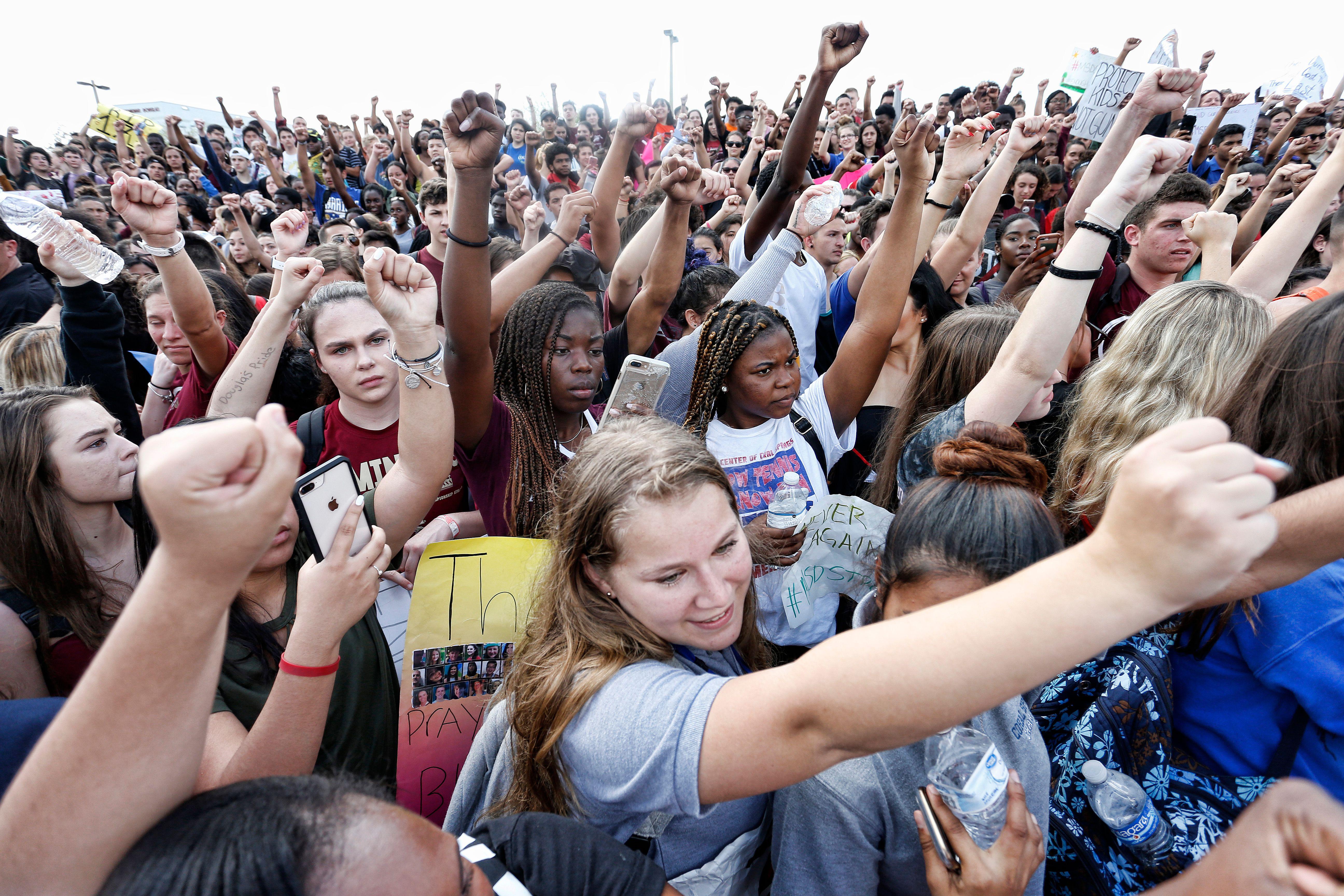Students across the country will walk out of their schools Wednesday as a tribute to the 17 victims of the Marjory Stoneman Douglas High School massacre and to urge lawmakers to act in response to gun violence. The 17-minute protest organized by Empower, the youth branch of the Women’s March, will begin at 10 a.m. in each time zone, and students from elementary school to college will march, make signs, and observe moments of silence instead of attend class.
While the National Student Walkout takes place amid a re-energized fight over gun control and school safety, it has also renewed a debate over students’ right to protest in schools. The more than 2,500 estimated walkouts are increasingly viewed as testing grounds for schools trying to strike a balance between enforcing school policies and respecting students’ free speech rights.
In 1969, the Supreme Court’s landmark Tinker v. Des Moines District decision established that students have the First Amendment right to protest. “Students do not shed their constitutional rights to freedom of speech or expression at the schoolhouse gate,” the justices ruled. However, students do not have the right to cut class or disrupt class, which means they could be punished for participating in the walkout if it is not approved by school administrators.
Bentonville Schools in Arkansas is just one of several districts across the country that warned students who plan on participating in the walkout that they will be counted absent and assigned detention in accordance with school policies.
The Needville Independent School District in Texas also announced in a now-deleted Facebook post that students who participate in any protest during school hours will be slapped with a three-day suspension. The policy received a backlash of criticism from the community and national media and prompted the American Civil Liberties Union to issue statements reminding school districts that they cannot punish students more harshly for participating in a protest or walkout than they normally would for any other absence.
There is a loophole, however, for students who want to protest without being penalized.
The ACLU says parents are within their rights to sign students out of class for 17 minutes or for the entire day. It’s a tactic that can be used not only to help students protest, but to prevent a potentially disruptive situation.
Several Ivy League colleges and other universities, from UCLA to the University of Connecticut, have reassured applicants that disciplinary actions as a result of participation in a walkout or demonstration will not affect their admission chances. Many high schools have echoed that sentiment, saying they will not punish students who protest as long as they are not disruptive.
Other schools have even encouraged it. The Associated Press reports that in Mooresville, Indiana, administrators will allow students to use the school’s public address system to read statements about mental illness and the importance of kindness before inviting all students to gather in a hallway for 17 minutes of silence.
At Arlington Public Schools in Virginia, spokesman Frank Bellavia said the district is supporting all student-led protests organized across its more than 30 schools.
“We want to encourage them to be involved, to be an active participant in their community, and to be part of these events across the nation,” he said. “They can see what the process is and be a better member of society when they leave the school system.”
The American Association of School Administrators has offered guidelines for schools on how to respond to the walkouts but has left the decision up to individual districts. Instead, the association has endorsed the April 20 National Day of Action to Stop Gun Violence in Our Schools, spearheaded by the Network for Public Education in response to the Parkland shooting. Organizers are calling for demonstrations, including sits-ins, walkouts, and marches, to show support for school safety.
“We’re not opposed to the walkouts, but we strongly support the National Day of Action,” AASA spokeswoman Noelle Ellerson Ng said. “Superintendents have a legal responsibility to make sure students are safe and to enforce absence and attendance policies. We also support them as they support students in their civic activities and engagement as it relates to gun safety in schools. The two don’t have to be in conflict.”
